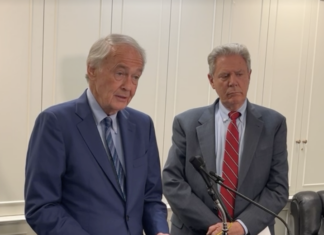By Richard Solash
BAKU (RFE/RL) — Matthew Bryza, the US ambassador to Azerbaijan, is heading back to Washington in the wake of the US Senate’s decision to go into recess without voting on his appointment, which has been opposed by Armenian-American groups.
Bryza’s departure from Baku comes one year after US President Barack Obama bypassed lawmakers and temporarily installed him in the post in a recess appointment.
Obama’s move overruled an attempt by two senators, Barbara Boxer (D-Calif.) and Robert Menendez (D-NJ), to block Bryza’s confirmation. But the appointment was only valid for the current session of Congress, which ends next week. To stay in Baku, Bryza needed the confirmation of the Senate, which went into recess before Christmas.
Bryza has more than 25 years of experience as a US diplomat and was one of the most visible US officials in the Caucasus region during George W. Bush’s administration, serving as deputy assistant secretary of state for European and Eurasian affairs. He is a former US co-chair of the Minsk Group, which seeks to broker a settlement to the dispute between Armenia and Azerbaijan over Nagorno-Karabagh.
To mark the end of his appointment, Bryza met with Azerbaijani President Ilham Aliyev on December 27 and on December 28 held a press conference to look back on his brief tenure. He said that under his leadership, the United States “has done good work in establishing strategic partnership and friendship between the US and Azerbaijan,” and “deepened cooperation” on Afghanistan.







